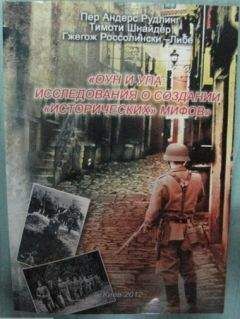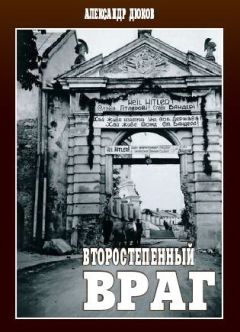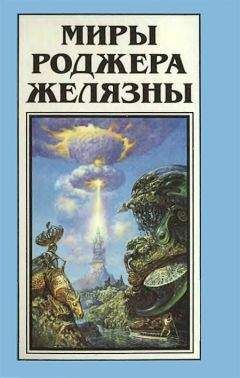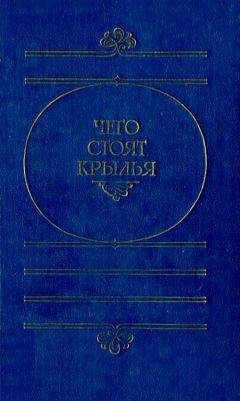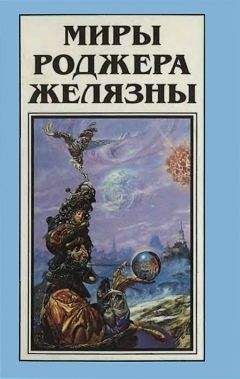436
Na poshanu sl. P. Stepana Bandery [Paying Homage to Stepan Ban-dera]. In: Ukrainian Echo 39/XXXI (19.09.1979), p. 1.
Na poshanu Stepana Bandery [Paying Homage to Stepan Bandera]. In: Ukrainian Echo 46/XXXI (07.11.1979), p. 1f.
U 50-richchia OUN [On the 50th Anniversary of the OUN]. In: Ukrainian Echo 7/XXXII (06.02.1980), p. 3.
For encouragement for celebration, cf. Zvernennia KUK [Appeal of the KUK]. In: Ukrainian Echo 43/XXXVI (24.10.1984), p. 2. For celebrations in Munich in 1984, cf. U pokloni Stepa-novi Banderi [Obeisance to the Pro-vidnyk]. In: Ukrainian Echo 44/XXXVI (31.10.1984), p. 1f., 4. For celebrations in Munich in 1989, cf. Zhalobni vidz-nachennia v Miunkheni [Mourning Ceremony in Munich]. In: Ukrainian Echo 45/XLVI (08.11.1984), p. 1f. For celebrations in Munich in 1999, cf. Povidomlennia [Announcement]. In: Ukrainian Echo 37/LI (04.10.1999), p. 1.
On Roman Shukhevych and the ethnic cleansing against Poles in Volhynia and Galicia, cf. Motyka 2006, p. 367. For Shukhevych’s atrocities against the Jews see Bruder 2007, p. 150. For Shukhevych’s atrocities in 1942 in Belarus, cf. Rudling, Per Anders: Schooling in Murder: Schutzmannschaft Battalion and Hauptsturmfbhrer Roman Shukhevych in Belarus 1942. In: Prawda historycz-na a prawda politaczna (volume in progress after a conference in Wroclaw with the same title).
Ukrainian News 20/LXXXII (15–28.10.2009), p. 8.
Broda, Ihor: Stepan Bandera — po-klin bezsmertnomu [Stepan Bandera — Deference to the Immortal]. In: Ukrainian News 20/LXXXII (15.-28.10.2009), p. 1, 8.
Ibid., p, 1.
Ibid., p, 2.
Cf. Ukrainian Echo 35/LXI (2009) (Special Section without a specific day of publication).
Golczewski 2010, p. 450. At the time of writing of this article the dean of the Philosophy Department at the UFU is the director of the Toronto office of the CIUS, Prof. Dr. Frank Sysyn. The dean of the Department for State and Economics Studies is Prof. Iaroslav Hrytsak, the director of the Institute for Historical Research at the L’viv University and visiting professor at the Historical Department of the Central European University in Budapest. Cf. Ukrainische Freie Universi^t/Ukrains’kyi Vil’nyi Univer-sytet/Ukrainian Free University Flyer. Munich: Ukrainische Freie Univ. 2010, p. 2. In an interview in 2009 Iaroslav Hrytsak wondered as to whether documents existed that would confirm that Roman Shukhevych contributed to the destruction of Jews in Ukraine. Since Franziska Bruder’s 2007 monograph proved this in the case of at least two villages, Hrytsak’s wondering seems remarkable. For the interview with Iaroslav Hrytsak, cf. Istoryk Ia. Hrytsak: Avtor kontseptsii henotsydu spyravsia na pryklad holodomoru [The Author of the Concept of Genocide Argued about the Famine]. In: Unian (15.09.2009) http://www.unian. net/ukr/news/news- 336228.html (accessed: 30.09.2010). For Bruder’s monograph and the Nachtigall battalion under the command of Roman Shukhevych, which slaughtered the entire Jewish population of two villages, see Bruder 2007, p. 150. Also see the original document in TsDAVOV f. 3833, op. 1, spr. 5 7, l. 17 (Autobiographies of well-known OUN members).
TsDIA (Tsentralnyi Derzhavnyi Istorychnyi Arkhiv), f. 371, op. 1, spr. 8, ed. 7 7, l. 69.
Very interesting in this regard is the UCC Task Force for» Developing Community Strategies regarding Recent Attacks on Ukraine's Liberation Movement «which was established in March 2009 by the UCC. This Task Force was also made up of such CIUS employees as Jars Balan and other believers in the ideology of Ukrainian nationalism, living mainly in Canada and Ukraine, including Steven Bande-ra, the grandson of Stepan Bandera. During a teleconference on March 8, 2009, the UCC Task Force discussed both this paper and another article by the author that were to be presented at the Holocaust and Memory Politics Workshop at the University of Alberta on March 11. At another conference, the UCC Task Force discussed the question of how to prevent research on issues surrounding the Holocaust and War Criminality in Ukraine. As the director of the UCC Paul Grod mentioned, the UCC Task Force considered how to» put pressure on North American academic institutions which are funded by community money (Harvard [Ukrainian Research Institute], the CIUS, and the Chair of Ukr[ainian] Studies [at the University of Ottawa], etc.)«. Shortly prior to my presentation of this article at the Holocaust Workshop, Bohdan Klid, the assistant director of the CIUS and a well-known activist of Ukrainian nationalism, came up to me and demanded to speak to me about my article. I declined and invited him to the workshop to express his concerns. Klid did not appear at the workshop. Information about the UCC Task Force and the content of the teleconferences come from emails by Lesia Demkowicz to [name withheld], March 2, and of Jars Balan to Lesia Demkowicz et al., March 14, 2010, in addition to an e-mail from Paul Grod to community leaders sent out on March 14, 2010. I am grateful to John-Paul Himka for providing me with the e-mails concerning the UCC Task Force for» Developing Community Strategy regarding Recent Attacks on Ukraine's Liberation Movement«.
The Harvard Ukrainian Research Institute invited Viatrovych a month later, on December 8, 2010, to give a lecture, as well. On Viatrovich's anti-Semitic writing about Jews and the OUN-UPA, cf. Kurylo, Taras/Himka, John-Paul: Iak OUN stavylasia do ievreiv: formulovannia pozycii na tli ka-tastrofy [What was the Attitude of the Organization of Ukrainian Nationalists toward the Jews? Reflections on Volodymyr Viatrovych's Book]. In: Ukraina Moderna 2/13 (2008), pp. 252–265. On anti-Semitism in contemporary Ukraine in general, cf. Per Anders Ruling: Organized Anti-Semitism in Contemporary Ukraine: Structure, Influence and Ideology. In: Canadian Slavonic Papers/Revue canadienne des slavistes XLVIII/ 1–2 (2006), pp. 81-119. On Viatrovych's lecture at the CIUS, cf. http://www. uofaweb.ualberta.ca/EVENTS/details. cfm?ID_event=25450 (accessed: 15.12.2010). On Viatrovych's lecture at the HURI, cf. http://www.huri. harvard.edu/calendar.html (accessed: 15.12.2010).
For David Marples and Ivan Lysi-ak-Rudnytsky, see Marples, David R.:Studying Ukraine. In: http://www.hist.cam.ac.uk/seminars_events/semi-nars/modern-european/marples-wri-ting-history-of-ukraine.pdf (accessed: 31.07.2010).
For John-Paul Himka and Ivan Lysiak-Rudnytsky, cf. Himka, John-Paul: My Past and Identities. In: Suny, Ronald Grigor/Kennedy, Michael D. (Eds.): Intellectuals and the Articulation of the Nation. Ann Arbor: Univ. of Michigan Pr. 1999, pp. 165–169, here p. 168.
The monograph is an introduction into historical discourses on the famine of 1932–1933 in Soviet Ukraine and the Ukrainian nationalism, cf. Marples, David. R: Heroes and Villains. Creating National History in Contemporary Ukraine. Budapest: Central European UP 2007.
For John-Paul Himka admiring the U PA in the 1980s, advising historians to follow the rules of the ideology of Ukrainian nationalism and being angry with historians who do not follow them, cf. the correspondence between John-Paul Himka and Janusz Radziejowski in: Interview with John-Paul Himka (a manuscript forthcoming in Krytyka). For David Marples uncritically following a Cold War narrative that whitewashed the OUN and U PA of crimes against Jews, Poles, non- nationalistic Ukrainians, Russians etc., cf. Marples, David: Ukraine During World War II: Resistance Movements and Reannexation. In: The Ukrainian Weekly 41/LIII (13.10.1985), p. 7, p. 13. In this article, Marples euphemizes UPA's crimes with the statement that» some undisciplined actions on the part of an armed group were almost inevitable«(ibid.) and claims that the U PA was a multicultural force as he writes that according to a Western source, the nationality groups within the [UPA's] ranks included Azerbaijanis, Uzbeks, Tatars, and Jews«(ibid.).
Buduemo dim ukrains'koi molodi [We are Building a Home for Ukrainian Youth]. In: Ukrainian News 8 (22.02.1973), p. 4; Rudling, Per: Multi-culturalism, Memory and Ritualization. Ukrainian public memorials in Edmonton, Alberta (article in progress which will explore in more depth the financial background of multiculturalism and Ukrainian nationalism in Edmonton).
The abbreviation OUN-B is used to distinguish the Bandera faction of the OUN from the faction led by Andrii Mel'nyk (OUN-M).
The term "Ukrainian National Revolution" is a propaganda term that the OUN-B used in 1940-41 to describe its plans for the Ukrainian territories after the outbreak of the conflict between Nazi Germany and the Soviet Union. For this reason, in this article, this term is always placed within quotation marks. For use of this term by the OUN-B, see Tsentral'nyi derzhavnyi arkhiv hromads'kykh obiednan' Ukrainy (TsDAHO) f. 1 (Tsentral'nyi komitet kompartii Ukrainy), op. 23, spr. 926, ll. 188, 193 (Postanovy II. Velykoho zboru Orhanizatsii Ukrains'kykh Natsionalistiv, 15, 25). For the alternative "Ukrainian Revolution," see Tsentral 'nyi derzhavnyi arkhiv wshchykh orhaniv vlady ta upravlinnia Ukrainy (TsDAVOV) f. 3833 (Kraewi provid Orhanizatsii ukrains'kykh natsionalistiv na zakhidnoukrains'kykh zemliakh), op. 2, spr. 1, l. 17 (Borot'ba i diial'nist" OUN pid chas viiny). The concept of a revolution, also termed a "national" or "permanent" one, is older than the OUN-B itself. The basic idea of the revolution was that it should liberate the Ukrainians from "occupiers." In 1940-41, however, the OUN-B invested this idea with a fascist, antisemitic, and racial meaning. For the older concepts of revolution, see, e.g., "Permanenma revoliutsiia," Surma 37, 10 (1930): 4–7; and Mykola Stsibors'kyi, "Peredposylka natsional 'noi revoliutsii," Rozbudova natsii 54–55, 7–8 (1932): 161-69.
Scholars working on this topic have already indicated some overlap between the proclamation of the Ukrainian state and the organization of pogroms and other acts of violence, but to date no one has analyzed them as parts of the same event, i.e., the "Ukrainian National Revolution." See, e.g., Franziska Bruder, "Den Ukrainischen Staat erkampfen oder sterbeni" Die Organisation Ukrainischer Nationalisten (OUN) 1929–1948 (Berlin: Metropol, 2007), 149.
For violence against Poles in Volhynia and eastern Galicia, see Grzegorz Motyka, Ukrainska partyzantka 1942–1960: Dziatalnosc Organizacji ukrainskich nacjonalistow i Ukrainskiej powstanczej armii (Warsaw: Rytm, 2006); Motyka, Tak Byto w Bieszczadach: Walki polskoukrainskie 1943–1948 (Warsaw: Oficyna wydawnicza Volumen, 1999), 110-15, 125-28; Timothy Snyder, "'To Resolve the Ukrainian Problem Once and for All': The Ethnic Cleansing of Ukrainians in Poland, 1943–1947," Journal of Cold War Studies 1, 2 (1999): 93-100. For the second Soviet occupation of western Ukraine, the brutal conflict between the Soviets and the OUN-UPA, and the terror conducted by the Soviets and the OUN-UPA against the civilian population, see Jeffrey Burds, "AGENTURA: Soviet Informants' Networks and the Ukrainian Underground in Galicia, 1944–1948," East European Politics and Societies 11, 1, (1997): 89-130, here 104-15; and Bruder, Den Ukrainischen Staat erkiimpfen odersterben, 231-32, 261-62. For the murder of Poles after the beginning of World War II and the German-Soviet war, see Motyka, Ukrainska partyzantka 1942–1960, 71–73, 99-100; and Wladystaw Siemaszko and Ewa Siemaszko, Ludobojstwo dokonane przez nacjonalistow ukrainskich na ludnosci polskiej Wolynia 1939–1945 (Warsaw: Wydawnictwo von borowiecky, 2000), 2:1034-37.
Other scholars have studied these documents, but as far as I know nobody has given them adequate attention. See, e.g., Frank Grelka, Die ukrainische Nationalbewegung unter deutscher Besatzungsherrschaft 1918 und 1941/1942 (Wiesbaden: Harrassowitz, 2005), 271-73. Grelka argues that in July and August 1941 the OUN-B had little support in western Ukrainian society. To justify this view, Grelka cited much too low a number of people signing the resolutions: he estimates "an average of no more than 60 per district" (Get. Bezirk, Ukr. pavit or rajah) in Ternopil" oblast, referring to the document "Plebitsytova aktsiia" in TsDAVOV f. 3833, op. 1, spr. 32. Here Grelka mistakes 60 signatures for a village in Ternopil" oblast to refer to an entire district, which usually comprised dozens of villages. This same file also includes a list of 71 villages from Zboriv district in L'viv oblast. The village with the lowest number of signatures on this list is Popolivka, with 53, and the one with the highest number is Ozirna with 1,045. Most others lie somewhere between 53 and 1,045 per village. The number of signatures collected in a district was therefore much higher than 60. In Zolochiv district alone, for instance, the OUN-B collected 8,000 signatures. See TsDAVOV f. 3833, op. 1, spr. 34, l. 40.
Frank Golczewski, "Die Kollaboration in der Ukraine," in Kooperation und Verbrechen: Formen der "Kollaboration" im ostlichen Europa 1939–1945, ed. Christoph Dieckmann, Babette Quinkert, and Tatjana Tonsmeyer (Gottingen: Wallstein, 2003), 162; R. Lisowi, Rozlam v OUN (Krytychni narysy z nahody dvatsiatylittia zasnuvannia OLIN) (s.l.: Vydavnytsvo Ukraina, 1949), 38–40.
For the ideology of the OUN, see Bruder, Den Ukrainischen Staat erkampfen oder sterben, 37–48; and Alexander J. Motyl, The Turn to the Right: The Ideological Origins and Development of Ukrainian Nationalism, 1919–1929 (New York: Columbia University Press, 1980), 163-69.
TsDAVOV f. 3833, op. 1, spr. 7, 1.2 (Draft of the constitution of a Ukrainian state).
Ibid. For a more detailed characterization of natsiokratiia, see Bruder, Den ukrainischen Staat erkampfen oder sterben, 34–35.
